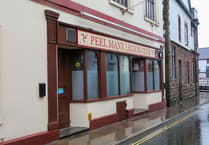A government department has unveiled its vision to create and fill 600 new jobs across the island over the next 12 months.
The Department of Enterprise has published its Department Plan for 2023-2024, which outlines how it plans to meet key government objectives by 2026.
Chief officer Mark Lewin said: ‘We begin 2023 with clear measurable targets for the next three years.’
Enterprise Minister Tim Johnston said: ‘This Department Plan sets us up to progress a number of important initiatives which will deliver real, positive outcomes for the economy.’
The plan sets out key priorities for 2023 for the DfE and its four executive agencies.
In addition to directly supporting the retention of more than 37,500 private sector jobs, the department says it wants to create and fill a minimum of 600 new jobs.
This would be a combination of 300 new roles across the digital sectors, 100 new roles across financial services, 150 new roles in the visitor economy and 50 new roles across export and local economy sectors.
To do this, Locate Isle of Man would support a minimum of 300 active relocations to the island and the Enterprise Support team would support a minimum of 300 new roles.
Longer-term, the DfE wants to see 1,800 new jobs filled, 2,500 new residents and 1,000-plus extra homes occupied by the year 2026.
The Department Plan also outlines commitments to a new workforce and skills strategy, updated employment legislation, a retail and leisure strategy, brownfield site regeneration and launching revised enterprise support schemes to encourage private sector investment and growth.
The DfE is responsible for four executive agencies created in 2017-18 – Finance, Business, Digital and Visit Isle of Man – which employ about 50 staff.
These sit alongside the department’s central functions of policy and strategy development, marketing, enterprise support, legislation, and the Locate Isle of Man team.
It is also in charge of staging the TT and supports the aircraft and ship registries.
Overall, some 190 people are employed by the DfE across its various agencies, functions and registries.
The DfE says it operates largely on a revenue neutral basis for its staff, services and basic functions.
It says it aims to collect around £27m of revenue during the next financial year and re-invest this back into the economy through the work across the department including the executive agencies and motorsport.




